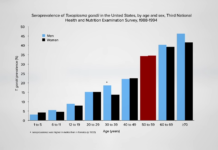Table of Contents
Introducing PCOS and its effect on fertility
Polycystic Ovarian Syndrome, or PCOS, is an endocrine disorder that affects millions of women across the world. It is a very common condition that affects 1 in 10 women and can have a big impact on fertility.
PCOS is caused by an imbalance of hormones; specifically, too much androgen (male hormone) which interferes with the release of eggs from the ovary. This can cause disruption to the menstrual cycle, making it difficult to conceive.
It can also affect weight, acne, hair growth, and many other things. This is why it’s important to try and manage PCOS to the best of one's ability and the PCOS Fertility Diet can help with this.
How the PCOS Fertility Diet Can Help
The PCOS Fertility Diet is designed to help women balance their hormones and improve fertility. By following the principles of the diet, women are able to reduce their symptoms, lose weight, and get their hormones back in balance.
The diet is based on whole foods, with an emphasis on plant-based proteins, fresh fruits and vegetables, and healthy fats. It also includes avoiding refined carbohydrates and sugar, which can worsen symptoms of PCOS.
By following the PCOS Fertility Diet, women can improve their overall health and increase their chances of conceiving naturally.
What is PCOS?
Polycystic ovary syndrome (PCOS) is a common hormonal disorder that affects as many as one in 10 women of childbearing age. It occurs when a woman’s hormones are out of balance, causing a variety of symptoms such as irregular or absent menstrual periods, unwanted hair growth, acne, and infertility.
The exact cause of PCOS is unknown, but it may be linked to genetics, or it may be associated with factors such as insulin resistance or inflammation. PCOS can be diagnosed by physical examination, a pelvic ultrasound, laboratory testing, and other tests.
What are the symptoms of PCOS?
The most common symptom of PCOS is irregular or absent menstrual periods. Women with PCOS may also experience unwanted hair growth on the face, chest, back, stomach, thumbs, or toes; thinning hair on the scalp; oily skin or acne; and weight gain.
In some cases, PCOS can lead to fertility problems, as ovulation may occur irregularly or not at all. It is important to seek treatment for PCOS if you are having trouble getting pregnant.
What are the risks of PCOS?
If left untreated, PCOS can increase a woman’s risk of developing serious health conditions such as diabetes, high cholesterol, heart disease, and endometrial cancer. Women with PCOS are also more likely to suffer from depression and anxiety.
It is important to talk to your doctor if you have any of the above symptoms or are worried about your fertility. With the right treatment, PCOS can be managed to reduce your risk of developing long-term health complications.
Overview of the PCOS Fertility Diet
The PCOS Fertility Diet is a nutritional plan that focuses on eating certain foods and avoiding others to improve fertility health in women with PCOS. The goals of this diet are to nourish your body, balance hormones, reduce inflammation, and promote ovulation. This diet encourages healthier food choices to supply the body with necessary vitamins, minerals, and other essential nutrients, while avoiding high-sugar, processed foods.
The main principles of the PCOS Fertility Diet include:
- Eat real food with minimal processing
- Focus on a balanced diet with lean proteins, complex carbohydrates, healthy fats, and fiber
- Consume plenty of nutrient-dense foods high in antioxidants and phytonutrients
- Monitor your blood sugar levels and make sure to maintain a healthy weight
There are also a few dietary guidelines to follow:
- Minimize or eliminate added sugars, refined grains, and unhealthy fats
- Eat organic whenever possible
- Avoid dairy, gluten, and processed foods
- Choose sustainable seafood over farmed fish
By following these dietary principles and guidelines, you can increase your chances of getting pregnant and boost your overall fertility health. This guide will provide you with meal ideas and suggestions to help get you started on the PCOS Fertility Diet.

Breakfast Suggestions
Starting your day with a nutritious breakfast is an important part of the PCOS Fertility Diet. Eating a good breakfast provides your body with all the nutrients and energy it needs to get through the day, while also supporting optimal fertility.
Here are some nutritious meal ideas to consider for breakfast:
- Scrambled eggs with tomatoes, mushrooms, spinach and avocado
- Overnight oats with chia seeds, almonds, flaxseeds and berries
- Whole-grain toast with natural peanut butter and banana slices
- Yogurt parfait with granola, nuts and honey
- Smoothie bowl with banana, cacao nibs, almond milk and dates
Each of these breakfast options contains many essential vitamins and minerals that can help boost fertility. For instance, eggs and yogurt are high in protein and contain lutein, which helps to improve egg health. Whole grains, like oats and bread, provide complex carbohydrates for sustained energy. Berries, banana slices, nuts and seeds are full of antioxidants and healthy fats that are essential for reproductive health.
Lunch Suggestions for the PCOS Fertility Diet
When following the PCOS Fertility Diet, it is important to make sure to include nutrient-dense foods in your lunch, along with plenty of fresh fruits and vegetables. Eating a balanced meal helps to ensure you get all the necessary vitamins and minerals needed to foster fertility. Here are some suggestions for nutritious lunch options:
- A salad of leafy greens, tomatoes, cucumbers, cooked quinoa, grilled chicken and avocado dressed in olive oil and lemon juice.
- A fresh veggie wrap with avocado, lettuce, bell peppers, tomatoes, carrots and hummus.
- Brown rice sushi rolls with tuna or salmon, avocado, and bell peppers.
- Brown rice bowl with steamed vegetables, mushrooms, edamame, black beans and a poached egg.
- Grilled turkey wrap with spinach, tomatoes, onions and light mayonnaise.
- Chicken fajita bowl with brown rice, salsa, black beans, bell peppers, and onions.
- Veggie omelet with mushrooms, tomatoes, bell peppers, spinach and Swiss cheese.
Nutrient-rich foods like these will not only help to nourish your body and keep you feeling full throughout the day, but they’ll also help to support your fertility journey. You can also add protein shakes or smoothies with fruits to your diet as well.
Dinner Suggestions
If you are looking for ways to boost your fertility through the PCOS Fertility Diet, then dinner is a great place to start! There are many delicious meal options available that offer excellent nutritional benefits. Here are some suggestions for creating a healthy dinner that can help you on your fertility journey:
- Grilled salmon or other lean proteins
- Vegetables like spinach, broccoli, and asparagus
- Salads with a lean protein such as chicken, shellfish or tofu
- Soups with a variety of vegetables, legumes, and grains
- Whole grain pasta dishes with a lean protein such as shrimp or chicken
These meals provide a good balance of lean protein, healthy fats, fiber, vitamins, and minerals. Additionally, protein-rich foods can help to promote better blood sugar control, which is important for hormone balance. Healthy fats, such as those found in fish, nuts, seeds, and avocados, can also help to promote hormone balance and a healthy reproductive system.
Snack and Beverage Ideas – Nutritional Benefits, Meal Ideas
When it comes to the PCOS Fertility Diet, snacks and beverages can play an important role. When it comes to snacks, choosing foods that are high in protein and fiber, such as raw fruits and vegetables, nuts, and seeds are recommended. Skipping sugary, processed snacks is best when trying to regulate hormones and boost fertility.
For beverages, drinking lots of water is key to staying hydrated, as well as consuming herbal teas, such as green tea, chamomile tea, or ginger tea. These can help reduce inflammation and balance hormones. It’s also important to limit your caffeine intake and avoid alcohol, as these can both have detrimental effects on your fertility.
- Raw fruits & vegetables
- Nuts & seeds
- Herbal teas – green tea, chamomile tea, ginger tea
- Water
- Limiting caffeine intake
- Avoiding Alcohol
Supplements & Multivitamins to Boost Fertility
When it comes to boosting your fertility, certain supplements and multivitamins can be very beneficial. The PCOS Fertility Diet has specific guidelines for which vitamins and supplements should be taken in order to maximize your fertility levels. Here are the most important supplements and multivitamins that will help increase your chances of conceiving:
- Folic Acid – Folic acid is a B-vitamin that helps in the production of red blood cells. It is important for the development of a healthy fetus, and women who are pregnant or trying to become pregnant should take 400-800mcg of folic acid daily.
- Vitamin D – Vitamin D is essential for regulating hormones related to the menstrual cycle, and can also help with fertility. It is recommended to take 1000 IU of Vitamin D daily, with additional amounts during pregnancy.
- Vitamin B12 – Vitamin B12 is essential for the reproduction of DNA and the formation of red blood cells. It helps regulate hormones related to the menstrual cycle, and inadequate amounts can cause infertility. It is recommended to take 1000mcg of vitamin B12 daily.
- Vitamin C – Vitamin C plays an important role in the regulation of ovulation. Women who are attempting to get pregnant should take at least 500mg of vitamin C daily for optimal fertility benefits.
- Calcium – Calcium helps regulate hormones related to the menstrual cycle, and adequate amounts can improve egg quality in women attempting to conceive. It is recommended to take 1000-1500mg of calcium daily.
- Iron – Iron helps with the transport of oxygen throughout the body, and can improve fertility in women who are iron deficient. It is recommended to take 30mg of iron daily when attempting to conceive.
- Zinc – Zinc helps with both male and female fertility. It is recommended to take 30-50mg of zinc daily when trying to get pregnant.
It is important to consult your doctor before taking any supplement or multivitamin, as too much of any one vitamin could be dangerous. Your doctor can recommend the right dosage for you, based on your medical history and other factors.
Cooking tips and food preparation advice
When following the PCOS Fertility Diet it’s important to make sure you are preparing your meals in the right way. Here are some tips and advice on cooking and food preparation that can help you maximize your chances of fertility:
- Choose fresh, natural, organic foods as often as possible
- Avoid processed foods
- Avoid high-fat and high-sugar foods
- Replace foods that contain trans-fats or hydrogenated oils with their healthier alternatives
- Cut back on sodium and use natural spices and herbs for flavor
- When making a soup base, opt for vegetable-based soups instead of those with chicken or beef broth
- Focus on steaming, baking, boiling or grilling instead of deep-frying or sautéing
No matter what meal you’re making, always be mindful of how you are preparing it. Keep to a Mediterranean-style diet and use olive oil as your primary source of fat. Avoid using unhealthy fats such as margarine or butter. When it comes to snacks, opt for fresh fruit or vegetables rather than sugary treats.
Exercise Tips and Guidance For PCOS and Fertility
Exercising regularly is one of the most important parts of managing PCOS. Research has shown that regular exercise can help reduce inflammation and improve the body's sensitivity to insulin, as well as improving a person's mood and overall state of health. Furthermore, exercise can help boost fertility in those with PCOS by increasing blood flow to the reproductive organs.
When beginning an exercise routine it is important to start slow and gradually increase intensity. This will help your body adjust and prevent injury or burnout. Start by walking for 15 minutes a day, and then increase the time as you build up endurance. You can also incorporate other activities such as biking, swimming, yoga, and weight training into your exercise routine to mix things up.
It is important to remember to stretch before and after any physical exercise. Stretching increases flexibility and helps prevent muscle soreness and strain. To make sure you are getting the most out of your workout, focus on exercising both your upper and lower body. Finally, make sure to take at least one day off per week to give your body some rest and recovery time.
Stress Management & Lifestyle Changes
Stress is a common part of everyday life, and it can be very difficult to manage. Stress can have a negative impact on both your physical and mental wellbeing. Research has shown that chronic stress can interfere with fertility, and the effect is more pronounced in women with PCOS. Fortunately, there are many ways to reduce stress and improve your wellbeing.
First, identify what causes your stress – this could be a combination of factors such as work, family, financial and lifestyle issues. Once you have identified the source of your stress, you can start to develop strategies to manage it. Activities such as relaxation techniques, yoga, mindfulness and other forms of exercise can all help to reduce stress levels and improve your wellbeing.
It's also important to look at your lifestyle more generally and make any necessary changes. This includes getting enough rest and sleep, eating a balanced diet and having regular medical check-ups. Additionally, if you're struggling with stress, you may need to talk to someone about it. Talking to a counsellor or therapist, or even just a trusted friend, can help you to get your feelings out in a safe and controlled environment.
The key to managing stress and improving fertility is to take control of your own life. Take care of yourself, create a healthy lifestyle and find ways to reduce your stress levels. With the right approach, you can boost your chances of conceiving naturally and achieve a healthier, happier life.
The Benefits of the PCOS Fertility Diet
The PCOS Fertility Diet is a great way to boost your chances of fertility and becoming pregnant. Eating a diet that is rich in whole foods, lean proteins, and healthy fats can help reduce symptoms of PCOS such as irregular periods, weight gain, and acne. These foods also provide important nutrients that can aid in egg health and improve overall fertility. Also, exercising regularly, managing stress levels, and taking the right supplements can further boost fertility.
By following the PCOS Fertility Diet, you can nourish your body and give it the tools it needs to become fertile. This type of diet provides all the essential nutrients needed for a healthy pregnancy and can even help reduce the risk of complications during birth. Eating a balanced diet will also support your overall health during pregnancy and post-partum.
The PCOS Fertility Diet is designed to provide the necessary support for a successful conception and pregnancy. It's important to remember that every person is unique and there is no one-size-fits-all diet. Be sure to speak with your doctor to determine the best approach for you and your situation.
FAQs for PCOS Fertility Diet: Boosting Your Chances
What is PCOS and how does it affect fertility?
Polycystic Ovarian Syndrome (PCOS) is a condition characterized by the presence of multiple small cysts on the surface of one or both ovaries. It is a common hormonal disorder in women that can affect fertility and reproduction. It is caused by an imbalance of hormones, particularly excess levels of male hormones, which can lead to irregular menstrual cycles, problems ovulating, and infertility.
What are the benefits of following the PCOS Fertility Diet?
The main benefit of following the PCOS Fertility Diet is its ability to correct hormone imbalances associated with PCOS and improve overall fertility. This includes reducing insulin resistance, regulating menstrual cycles, improving ovulation and egg quality, normalizing levels of hormones such as testosterone, and supporting healthy weight loss.
What foods should I eat on this diet?
As part of the PCOS Fertility Diet, it is recommended to focus on getting enough protein, healthy fats, fibre and complex carbohydrates. This could look like lean proteins such as fish, tofu, eggs, nuts and seeds; healthy fats from avocados, olive oil and coconut oil; plenty of fruits, vegetables, whole grains, legumes, nuts and seeds; and foods high in vitamin B12, such as fortified plant-based milks, nutritional yeast and spirulina.
What supplements and multivitamins may help boost fertility?
Certain supplements and multivitamins may be beneficial for people with PCOS in order to boost fertility. These include omega 3 fatty acids, probiotics, Coenzyme Q10, N-acetylcysteine, chasteberry, melatonin and Myo-inositol.
What exercise tips and guidance are there for improving fertility with PCOS?
Exercise can help people with PCOS regulate their hormones and improve fertility. Moderate intensity physical activity 3-4 times per week is recommended for at least 30 minutes at a time for general health benefits, but more vigorous exercise like aerobics and strength training may be beneficial for helping to reduce insulin resistance and weight loss. In addition, low impact activities such as yoga and tai chi can also help reduce stress, a common cause of infertility.
How important is stress management?
Stress management is very important for people with PCOS as it can lead to lower fertility rates. Stress can affect your body’s ability to produce reproductive hormones, which can reduce the chance of conception. Therefore, it is important to incorporate relaxation techniques, such as meditation, yoga, and deep breathing exercises into your routine.
What lifestyle changes should I make to optimize my fertility with PCOS?
Making certain lifestyle changes can help to improve fertility for people with PCOS. This includes eating a well-balanced diet, getting regular physical activity, quitting smoking if applicable, and maintaining a healthy body weight. Additionally, reducing stress and prioritizing quality sleep can help to improve reproductive health.
















